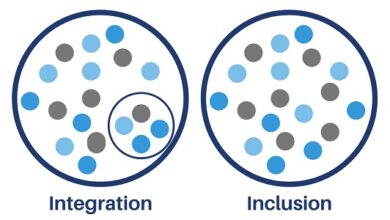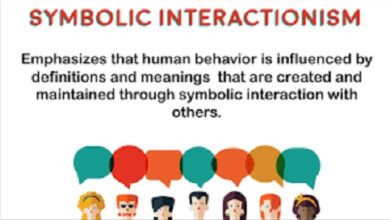Sociolinguistics
Sociolinguistics
Sociolinguistics is a field of study that explores the relationship between language and society. It examines how language is used by individuals and communities in various social contexts, how it varies across different regions and social groups, and how it reflects and shapes social structures, relationships, and power dynamics.
One of the main areas of inquiry in sociolinguistics is language variation and change. This includes studying how different dialects and accents are used by speakers in different regions or social groups, and how they change over time. For example, researchers may examine how the use of certain words or grammatical constructions varies between different age groups, ethnicities, or socioeconomic classes. They may also study how dialects or accents are influenced by migration, globalization, or other social factors.
Another important topic in sociolinguistics is multilingualism and language contact. Sociolinguists study how individuals and communities use and negotiate multiple languages in different contexts. This includes examining how bilingual or multilingual speakers switch between languages, how they use different languages for different purposes, and how they maintain or shift their language use over time. Sociolinguists also analyze how language contact can lead to the creation of new hybrid languages or dialects, and how it can influence language change and evolution.
Language attitudes and ideologies are also central to sociolinguistic research. Sociolinguists study how individuals and communities perceive and evaluate different languages and dialects, and how these attitudes influence language use and maintenance. This includes examining how language attitudes can reflect and reinforce social hierarchies and power relations, and how they can contribute to linguistic discrimination or language endangerment.
Language policy and planning is another important area of study in sociolinguistics. Sociolinguists examine how governments, institutions, and communities make decisions about which languages to use and promote, and how these decisions affect language use and maintenance. This includes analyzing language education policies, language revitalization efforts, and language planning initiatives aimed at promoting multilingualism and language diversity.
Sociolinguistics offers important insights into how language reflects and shapes social structures, relationships, and power dynamics. By studying the complex ways in which language is used and valued in different contexts, sociolinguists can help us better understand the social and language policies and practices that promote linguistic diversity and social justice.
-

Difference between integration and inclusion Similarities and FAQs
Integration and inclusion In this article we will provide you the difference between integration and inclusion Similarities and FAQs. What…
Read More » -

Urban landscape with Characteristics elements and examples
The urban landscape is the mix of environmental and human phenomena that coexist in a given location. In turn, urban space is understood…
Read More » -

Types Of Communities with definition activities and characteristics
There may be several reasons behind the different types of communities, which are nothing more than the voluntary and desired…
Read More » -

Social influence theory Types its psychological contributions
Human beings live in society. This implies that we are in constant contact with other people who have their own thoughts,…
Read More » -

Urban anthropology what it is and what is studied in it
Urban anthropology is the branch of anthropology that studies the sociocultural processes that occur in cities. It emerged as a result…
Read More » -

What is Symbolic Interactionism historical development and authors
Symbolic interactionism is a sociological theory that has had a major impact on contemporary social psychology, as well as other areas…
Read More » -

Social constructionism Theory fundamental ideas and authors
Social constructionism, or socio-constructionism, is a theoretical perspective that emerged in the mid-twentieth century as a result of the epistemological and…
Read More » -

Types of racism 8 most common types of racism
The types of racism that occur on the planet are an example of the extent to which there are attitudes based…
Read More » -
What is a Traditional Society Main Characteristics and Types
A traditional society , in the field of sociology, is a society that is based on the rules and customs established in…
Read More » -
What are social needs Features types and examples
Social needs The social needs of the human being are all these inescapable interactions to ensure the subject’s well-being in a social…
Read More »